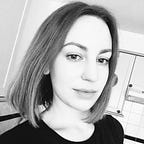Tell Me What You’ve Learned About Learning: Alex Magill
The first in a series in which I discover others’ learning secrets.
If, like me, you’re still very curious to figure out your potential despite being a grown adult, you may also want to know what others are discovering as they grapple with similar questions.
It’s not easy to fit deliberate learning and ambitious projects into a life that may now include a job, and/or family, and/or other responsibilities.
Fortunately, there’s great value to be found in the idea of “learning smart”: learning how to learn efficiently, saving time and energy.
So I am delighted to begin sharing this series of short interviews, in which some thoughtful and productive people share what they’ve figured out about fitting continuous learning into real life.
No promises can be made about the schedule of these posts because we are all quite busy with work, studies and life. But follow this publication if you like. You can also join me and my kind interview subject, Alex Magill, on Twitter for much discussion of learning and creative/technical work.
Many thanks to him for taking the time to answer the three following questions. The lessons he shares here about learning are some of the most important and useful ones: understanding your learning style, remembering things and how much time is really required.
Me: What are you actively learning about currently, and why?
Alex: The two big areas I’m focusing on at the moment are development and writing.
My development curriculum was originally driven by significant gaps in my knowledge. When it comes to code, I’m self-taught (apart from a now rusty grounding in Pascal) and I’ve learned by chance and necessity. Although the areas I’ve covered are broad, there are significant blanks. I often found that I could get things to work but that I didn’t know why or how they worked. That was a huge source of frustration. I’m working to fill these gaps in and to gain deeper understanding.
Beyond that, I’m working on learning to speed up and improve the ways I work and the tools I use. I find there’s a balancing act in running a business between getting on with the work itself and improving the processes behind it. Much has shifted in the last handful of years with new approaches, tools and processes appearing and maturing. JAM stack, static site generators and no/low code are three of those that I’m exploring now. It’s disruptive taking the time out to learn, test and integrate these, but incredibly rewarding. My biggest challenge is around adjusting (or re-writing) my mental models of what works, how it works and of what is possible.
My push with writing is similar. I’ve long kept notebooks and journals, but it’s been somewhat haphazard in purpose and practice. I’m now pursuing a more structured approach to improving my writing by reading more critically, working through structured writing exercises, writing a lot more and sharing my writing openly.
Writing, for me, is a way of exploring, interrogating and clarifying my thoughts and ideas. Improving this practice is hugely important to me.
What are your study habits like?
I discovered (embarrassingly) recently that I learn best by reading, by doing and through conversations. Videos don’t suit me at all and, thinking back, lectures never did either. I zone out and get frustrated by the pace. I try to build in learning, practice and writing time into every day. Where I can, I look to build this in to active, real-life projects and work — learning and solving problems as I go.
Writing up what I’ve learned is important. Not only does it help me remember, but it forces me to comprehend — or to acknowledge where I don’t understand something. It’s a good way of celebrating progress too. I try and write every day, even if it’s a handful of paragraphs.
What is one significant lesson you have learned about learning?
The biggest lesson I’ve learned is that tiny steps really do add up. I find it all too easy to beat myself up for not doing enough, learning enough, putting in enough hours in a day. I’m realising that that’s not what matters, it is consistency and finding the process itself, the act of exploring and learning, enjoyable that counts.
I hope you enjoyed this interview! I could not agree more with the lessons shared (especially the last one).
As mentioned, the schedule of these posts will vary. But you can follow this publication if you’d like a notification of the next one.
You can also find me / Alex Magill on Twitter for a sensible number of tweets about learning and creative/technical work.
